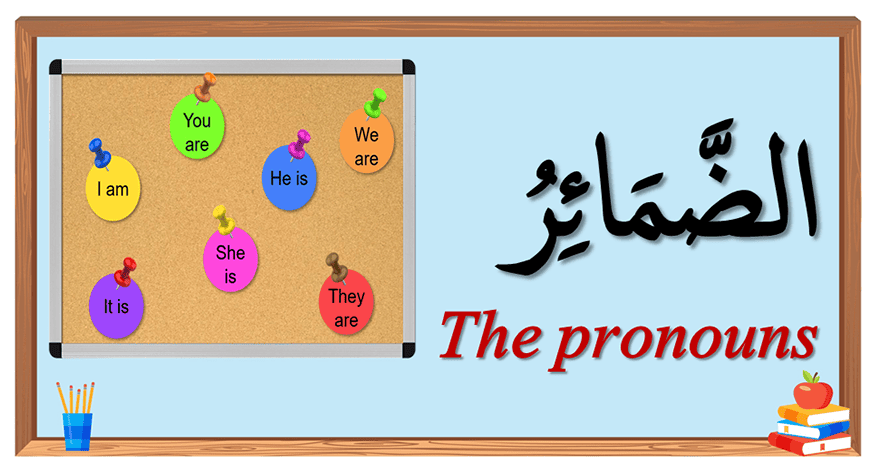Pronouns in Arabic: أنا, نحن, أنتَ, أنتِ, أنتما, أنتم, أنتن, هو, هي, هما, هم, هن
Pronouns are indispensable elements in any language, providing a means to refer to individuals or groups without repeating nouns. In Arabic, pronouns hold significant importance, reflecting various aspects such as gender, number, and formality. Let’s delve into the usage of these fundamental Arabic pronouns:
- أنا (ana) – I (singular, first person)
- Used when referring to oneself as the speaker.
- نحن (nahnu) – We (plural, first person)
- Employed to refer to a group of individuals including the speaker.
- أنتَ (anta) – You (masculine singular, second person)
- Used when addressing a male singular person informally.
- أنتِ (anti) – You (feminine singular, second person)
- Employed when addressing a female singular person informally.
- أنتما (antumā) – You two (dual form, second person)
- Used when addressing two individuals informally, regardless of gender.
- أنتم (antum) – You (masculine plural, second person)
- Employed when addressing a group of individuals, all of whom are males or a mixed-gender group, informally.
- أنتن (antunna) – You (feminine plural, second person)
- Used when addressing a group of females informally.
- هو (huwa) – He (singular, third person masculine)
- Employed when referring to a male singular person or an object with masculine gender.
- هي (hiya) – She (singular, third person feminine)
- Used when referring to a female singular person or an object with feminine gender.
- هما (humā) – They two (dual form, third person)
- Employed when referring to two individuals, regardless of gender.
- هم (hum) – They (masculine plural, third person)
- Used when referring to a group of individuals, all of whom are males or a mixed-gender group.
- هن (hunna) – They (feminine plural, third person)
- Employed when referring to a group of females.
These pronouns are essential in everyday Arabic conversation, enabling speakers to express themselves clearly and effectively. Mastery of these pronouns is crucial for developing proficiency in Arabic communication.


